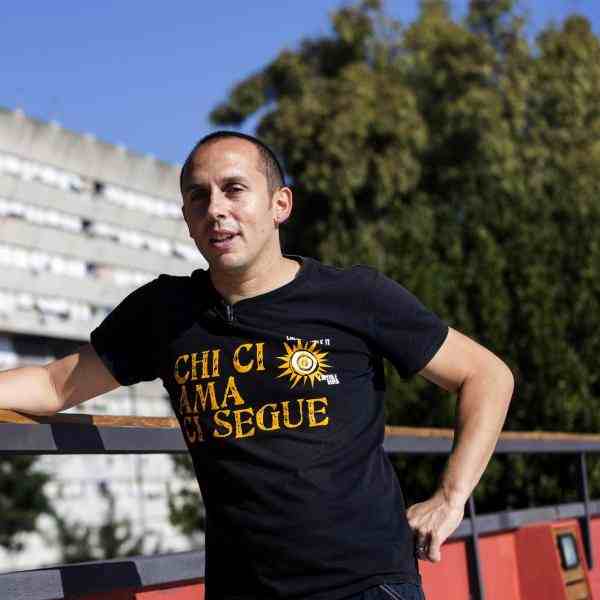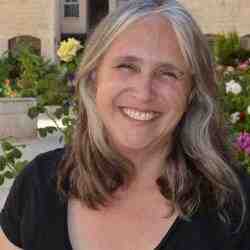“Changing the rules of soccer to reinterpret the rules of the world” is Calciosociale’s motto, making the objective of the organization very clear. According to the principles and values promoted by Calciosociale, soccer is a metaphor of life, building the fundamentals of inclusion, respect for… Leer más
“Changing the rules of soccer to reinterpret the rules of the world” is Calciosociale’s motto, making the objective of the organization very clear. According to the principles and values promoted by Calciosociale, soccer is a metaphor of life, building the fundamentals of inclusion, respect for other cultures, civic-awareness and a solid relationship with society. Every initiative of Calciosociale is strongly pedagogic-oriented and intended to highlight the potential rather than the limitations of those people considered difficult to handle, honing one’s skills by giving value to everyone’s limitations and differences.
Calciosociale completely reshapes the rules, roles and objectives of soccer. Specifically, each game takes place within a Calciosociale championship that includes both matches on the field and out of the field, to become true Caretakers. Another motto of Calciosociale is: “Only those who care, will win.”
• On the field:
Calciosociale’s teams are formed by some young professional players as well as people of mixed ages, gender and talents. Each person is assigned a coefficient according to his/her soccer skills in a scale ranging from one to ten. Coefficient 1 is the most fragile player, while coefficient 10 is the strongest player. All coefficients must be present in a team. Specific rules ensure that team-play is incentivized (nobody can score more than 3 goals, for example) and that the usually-excluded-players are an essential asset to victory (for instance, penalties must be kicked by the player with the lowest coefficient in the team). Matches are played with no referees, but within each team there is an educator who makes sure that the game is played fairly. There are no age limits to be part of a team (Massimo says that Calciosociale can be played by anyone between the age of 10 and 90!).
This inclusive approach makes neuro-typical and disabled people interact with one another, proving extremely versatile and, therefore, applicable to different contexts and situations. Moreover, as part of non-formal education, the “peer to peer” learning within Calciosociale has become common practice. This relational method promotes teamwork and enables children to pass down acquired knowledge and to guide those who encounter more difficulties. In line with the rules of Calciosociale—“looking after the others” and “being loyal”—the winning team is the one that promotes the potential of each member, regardless of being talented, facing cultural, social, physical or mental disabilities.
• Outside the field:
Off-field games are of two types: 1) thematic meetings on topics related to active citizenship, such as studying the Constitution, or the history of Mafia victims and 2) urban redevelopment projects in the neighborhood. These are essential parts of Massimo’s program because they keep the entire community through kids and their families, active. In fact, in order to increase their score for the tournament, teams are encouraged to engage more and more people in activities outside the field.
Calciosociale’s methodology is based on a holistic personal development. Wellbeing stems from a series of actions that take into consideration different aspects: children’s psychology, their socioeconomic status, the relations involved in their civic development, the care for the environment and the community around them, which define a sound self- and other-awareness.
With these rules, Massimo has created a toolkit that can easily be replicated by many others, including schools, speakers, and soccer schools. Calciosociale has received many awards recognizing its impact. It has been awarded as Best Practice by the European Union and has been mentioned as an example of excellence by the Italian Minister Del Rio during the Italian semester of the European Parliament.
Massimo's goal is that every child who plays soccer experiences Calciosociale's methodology at least once in his/her week's training. So, he hopes to reach both—the one player in every 5000 that goes to the top teams and the 4999 that are left behind. This empowers kids to be active and aware citizens of their communities. The strategy to achieve this goal is to activate testimonials, such as the professional players of the top teams, and to have the soccer schools of the major Italian companies use the Calciosociale methodology.
Calciosociale is now replicating in 4 Italian regions: Tuscany, Sardinia, Abruzzo and Campania. Two Universities and three European First League teams are replicating Massimo’s methodology within their soccer schools and are sharing their results with Massimo: Università Tor Vergata (Italy), College West Anglia (UK), OGC Nizza (France), Debreceni Honved SE (Hungary), SC Levski Bulgaria.
Since its foundation in 2005, Calciosociale has had more than 3000 children and their families directly involved in its activities in the city of Rome and thousands of people reached through independent replications. In 2017, 350 kids have participated in Calciosociale’s workshops for inclusion in Rome, whereas around 600, amongst adults and children, have benefited from a European project for social inclusion involving Calciosociale.
Neighborhoods in which Massimo operates have seen improvements in social cohesion: specifically, gender violence, racial discrimination and violent crime have all decreased. These changes are all reflective of the rules Massimo has introduced in Calciosociale. For instance, encouraging boys and girls to play together discourages the negative gender norms that are at the root of gender violence. University of Tor Vergata has yet to complete its impact assessment on the topic map the consequences of this program on school participation and active citizenship. Nonetheless, the power of Massimo’s work is obvious to those who attend these neighborhoods, where soccer is without a doubt the most cathartic and important shared experience. By changing soccer’s rules, Massimo is ultimately changing social norms and tackling these systemic social issues at their root cause.
Read less


